Aeronautics celebrates academic staff promotions
by Ayesha Khan
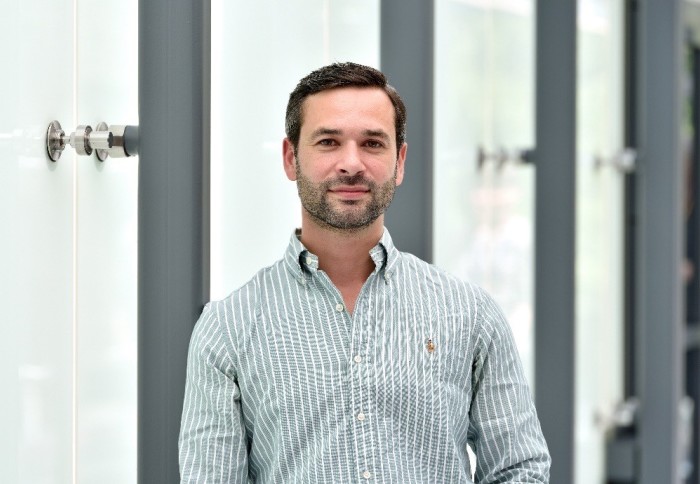
Dr George Rigas is one of the five promoted academics
Aeronautics sees five academics promoted in the latest promotion round, including our first female professor.
The Department is pleased to announce that five Aeronautics’ academics have recently received promotions in becoming senior lecturers, readers and professors.
Among them is Professor Zahra Sharif Khodaei, the Department’s first female professor.
Below we meet our newly promoted colleagues as they share insight into their academic backgrounds and research, their favourite thing about being a part of the College community and their advise for aspiring academics.
Zahra Sharif Khodaei – promoted to Professor in Aerospace Structural Durability and Health Monitoring
I obtained my PhD in Numerical Modelling of Functionally Graded Materials from Czech Technical University in 2008. Prior to my lectureship post in 2014, I was a Research Associate in the Department of Aeronautics where I conducted research into fatigue modelling and analysis of metallic and Fibre Metallic Laminates (FML), as well as development of technologies and methodologies for Structural Health Monitoring (SHM) of composite structures.
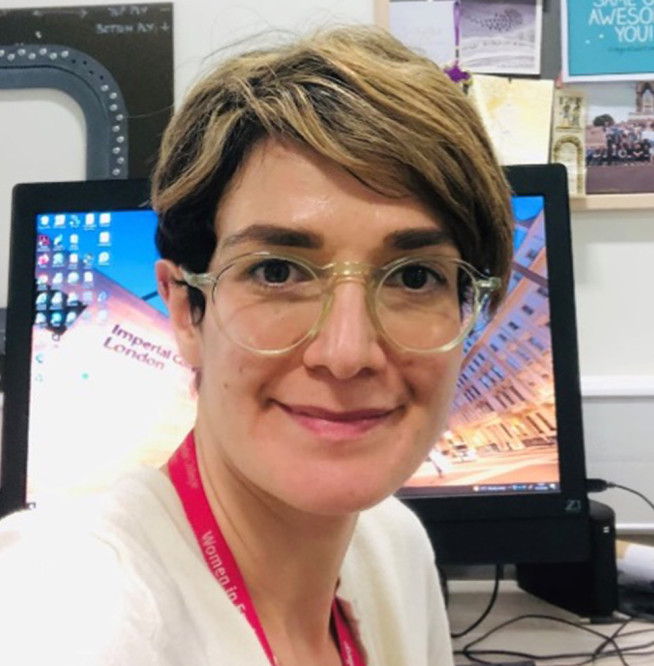
I am the Co-Founder of the Structural Integrity and Health Monitoring Group within the Department, a Fellow of the Royal Aeronautical Society and a Fellow of Women in Engineering Society.
The area of Structural Health Monitoring is an emerging field which is closely related to the developments of new smart structures – smartphones, smart cars, smart fridges etc. So the question is, why not smart aircraft?
SHM aims to integrate a large number of sensors over any given structure, and continuously monitors their response. As such we are able to detect any changes to the structure's integrity at a very early stage and in real time, with the ability to take action immediately - similar to our body’s nervous system.
This development will allow us to move away from the conservative design of composites, which are unable to detect small visible impact damages, which can be detrimental to the safety of the structure.
By relaxing the damage tolerant design of composite structures, we can make weight savings, resulting in less fuel consumption and greener aircrafts, as well as increasing safety via continuous monitoring.
Our research group is currently testing this technology on a five metre long curved fuselage panel (as part of the SHERLOC project) under complex loading. This technology can be used across many different applications.
I have also been awarded a research grant with the European Space Agency (ESA), which will look into reusability of vertical launchers where the application of SHM technologies can help with recertification of the structures.
Being part of Imperial enables me to conduct research with the right support. The College has state of the art facilities which allows me to carry out cutting edge research. More importantly, we have access to top students and staff who can help to facilitate all of this.
I am very happy to be named as the first female professor in the history of the Department. This is a great milestone not just for me but for the Department as a whole.
There has been a lot of great work in the past years related to Equality, Diversity, Culture, Communications and Inclusion from all different levels of staff. We are hoping to see more balanced student and staff ratios in the future. We seek to achieve this by focusing on our outreach activities, as well as by having more visibility of our female role models in the aeronautics sectors to shift the culture.
For those seeking a path in academia, my advice - believe in yourself and ensure you have people around you who support you.
I have had an amazing mentor, Professor Ferri Aliabadi, who always encouraged me to think of the next steps in my research career and believed in me which always motivated me to aim high. My family has encouraged and supported me as well, throughout this journey. There is no right or wrong path in academia; you need to find what works for you and at a pace that is right for you.
No two academics will have the same path in their career, so never compare yourself to others.
Sylvain Laizet – promoted to Professor in Computational Fluid Mechanics
I started at Imperial College London as an academic in 2014. I hold a PhD and a Habilitation à Diriger des Recherches from the University of Poitiers in France in the field of Computational Fluid Dynamics (CFD) applied to turbulence. I am currently leading the UK Turbulence Consortium and the ExCALIBUR project on turbulence at the exascale.
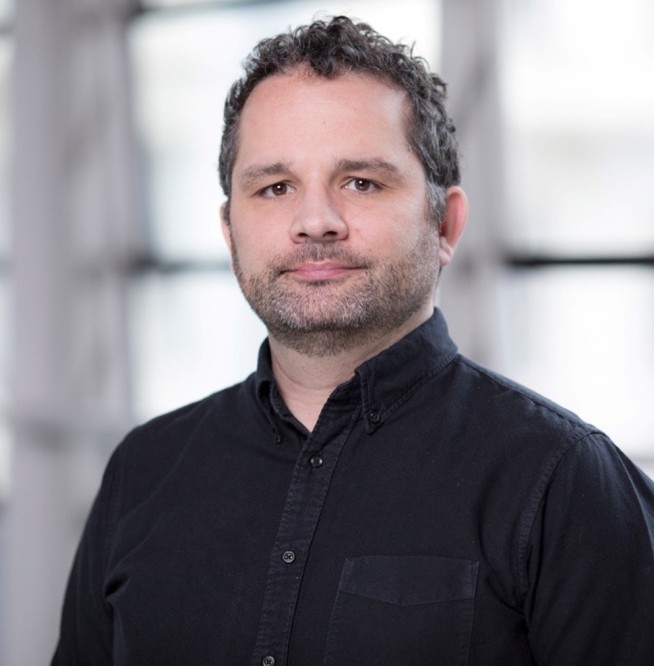
My research focuses on understanding turbulent flows, characterised by the irregular movement of fluid particles with eddies, swirls and instabilities, and how to manipulate them to the benefit of society. A better understanding of turbulent flows is crucial to the advancement of technology, especially ones that will reduce our impact on the environment.
The equations that describe fluid motions are highly complex, and their solutions are often difficult to obtain. To make significant advances in our understanding of turbulent flows scientists need to run simulations that require billions of calculations per second in order to reproduce virtually the important features of turbulence.
Over the years I have developed and used high performance computing (HPC) tools to study turbulent flows on supercomputers. I currently study turbulent flows over a wide range of applications from wind farms to gravity currents.
I am currently starting a new line of research to investigate the potential of quantum computing for Computational Fluid Dynamics (CFD).
The College and the Department of Aeronautics have played an important role since HPC’s beginning and they are at the frontline in Europe for HPC-based research, especially in the field of CFD.
The Department is fully aware that HPC has become essential for both scientific advancement and economic competitiveness and that skilled scientists are necessary to maximise the use of supercomputers and is therefore investing heavily in that direction.
My academic career and success would not have been the same without the unconditional support of my mentors. They helped in shaping my career path, offered me amazing opportunities to grow as an academic and gave me opportunities to explore new scientific ideas. Much thanks is given to my PhD supervisor, Professor Eric Lamballais, and Professor Jorge Silvestrini and Professor Christos Vassilicos.
Koon-Yang Lee – promoted to Professor in Polymer Engineering
I completed by undergraduate degree in the Department of Chemical Engineering at Imperial before receiving my PhD, also at Imperial, in the area of sustainable composite materials.
After my PhD, I continued on at Imperial as postdoc looking at sustainable composite materials before being seconded to a carbon fibre multi-axles manufacturing company.
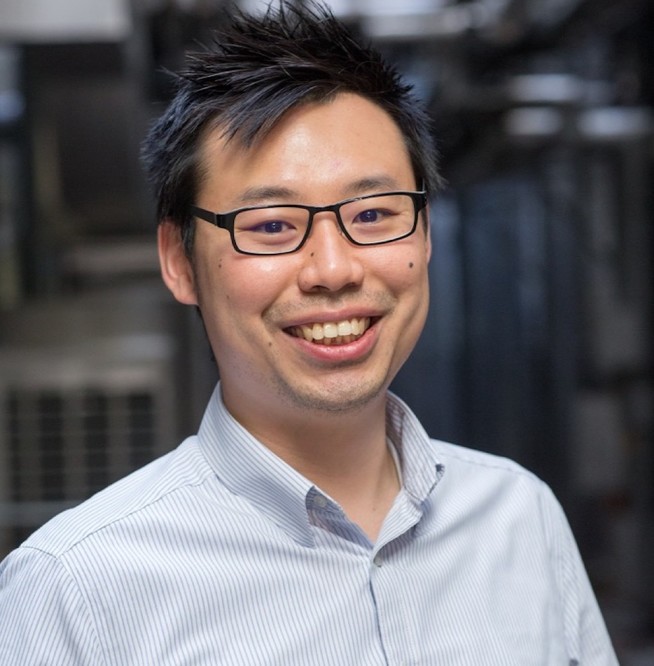
I then took on a postdoc at the University of Vienna before returning to the UK as a Lecturer in Chemical Engineering at UCL. I came back to Imperial around 7 years ago as a Lecturer in Composite Manufacturing. All in all, I’ve spent almost 16 years at Imperial!
My research looks at the development of sustainable polymer composite materials, with particular focus on how we can use waste materials, such as waste fibres, waste polymers, natural cellulose fibres and sustainably sources feedstock, to replace/displace fossil-derived polymeric materials.
The inspiration behind my work is moving humanity towards a more circular economy rather than the take, make, dispose consumption model. There are currently huge efforts to push towards a more sustainable future, of which we need to implement the reuse and recycling of existing materials and products for as long as possible, as well as reducing the amount of virgin fossil-based plastics we need.
Much of my research is on sustainable packaging, where I am looking to replace all flexible plastics with more sustainable composites. This includes materials that break down naturally, high durability plastics for longevity and plastics that can be recycled.
The Imperial community is fantastic for liaising with like-minded individuals both in the field of aeronautics and beyond. The College also encourages multidisciplinary and transdisciplinary research, which is essential in pushing the boundaries of science and engineering.
The promotion means a lot and it’s really nice to see that my scientific contribution is recognised by the College.
My advise for upcoming academics is to never stop pursuing great research ideas. Setbacks will inevitably come, but keep trying, always. 7 years ago I proposed the idea of recycling mixed plastics. It was received as a useless idea. And now? It’s made a comeback as the most important thing the UK wants to solve.
Aaron Knoll – promoted to Reader in Spacecraft Engineering
I received my PhD from Stanford University, where I investigated instability driven electron transport within Hall Effect Thrusters – a form of spacecraft plasma propulsion.
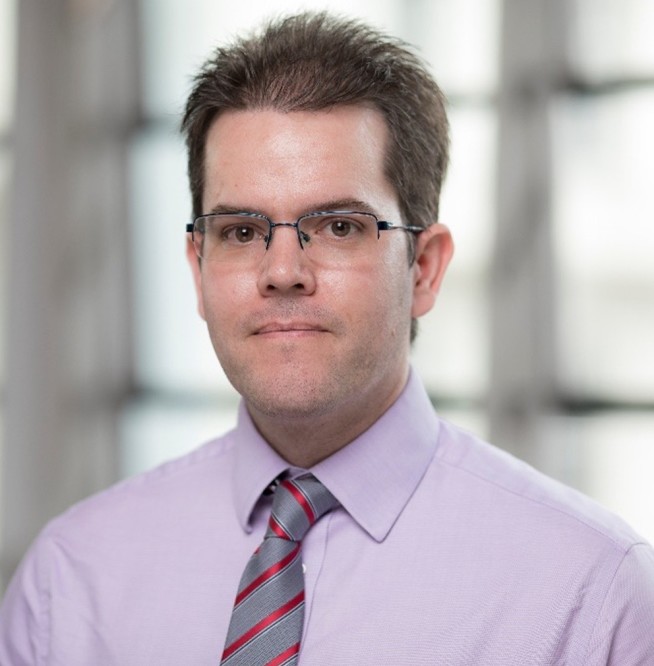
Following my PhD, I moved to UK as a postdoc at the Surrey Space Centre, University of Surrey. At Surrey I was involved in projects that looked at developing new thrusters for small satellite platforms.
Whilst at Surrey I became a lecturer within the Space Centre and started undertaking my own research on novel spacecraft and electric propulsion.
I joined Imperial 5 years and and have worked to build the Imperial Plasma Propulsion Laboratory, which blends disciplines of physics and engineering to enable human ambition in space. The Lab is unique as it was the first time the electric satellite propulsion had been studied at the College.
For as long as I can remember, I’ve been fascinated by human space exploration, so my field of research is exciting as it allows me to contribute to the advancement of space technology, namely getting from location A to B in the universe (space propulsion).
One particular focus of research is using water, as an environmentally sustainablesource, to propel spacecraft. Splitting water allows us to burn hydrogen and oxygen that produces thrust to chemical rockets.
Hydrogen and oxygen can also be used for electric propulsion. Using the heavy atoms of hydrogen provides ‘fuel’ to the ion thrusters. Hydrogen is then used to generate electrons, keeping the overall charge of the spacecraft neutral.
Water propulsion, as such, can be used for human spaceflight and robotic satellite missions.
Imperial provides a platform for world-changing research with a very supportive research community. Seeing work from other academics at the College is always inspiring; and colleagues are always very happy to discuss their research, so you can bounce ideas back and forth.
The promotion means a lot on a personal level as it recognises that the work I’m doing is not only important to me, but to the Department and the College too.
For aspiring academics, I think it’s really important to define what it is you want to contribute towards society and/or humanity. Once defined, you can really develop your own novel contribution, and along the way you’ll see that there’s a lot of enthusiasm from various organisations to help you reach that goal.
George Rigas – promoted to Senior Lecturer in Aerodynamics
I received my PhD. in Aeronautical Engineering from Imperial College in 2015, with focus on the modelling of turbulent wake flows. I then took up a postdoctoral position at the University of Cambridge and followed on to be a Postdoctoral Scholar the California Insititute of Technology.
I returned to Imperial 3 years ago as a Lecturer in Aerodynamics.
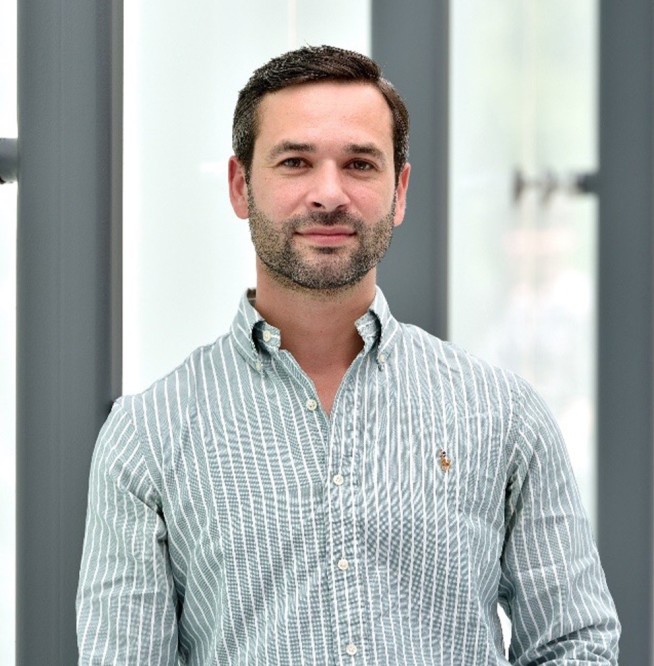
My research focuses on the fundamental understanding and optimization of transitional and turbulent flows encountered in the aerospace and automotive industry.
I am particularly interested in the development and implementation of active and passive flow control schemes, which reduce noise and aerodynamic drag.
I seek to accelerate and enable the transition to Net-Zero Carbon Emissions by optimizing the aerodynamics of road and air vehicles.A key enabler for my work is the world-class experimental wind tunnel facilities in the Department of Aeronautics, which bridges the gap between numerical simulations and theory.
Article text (excluding photos or graphics) © Imperial College London.
Photos and graphics subject to third party copyright used with permission or © Imperial College London.
Reporter
Ayesha Khan
Department of Aeronautics